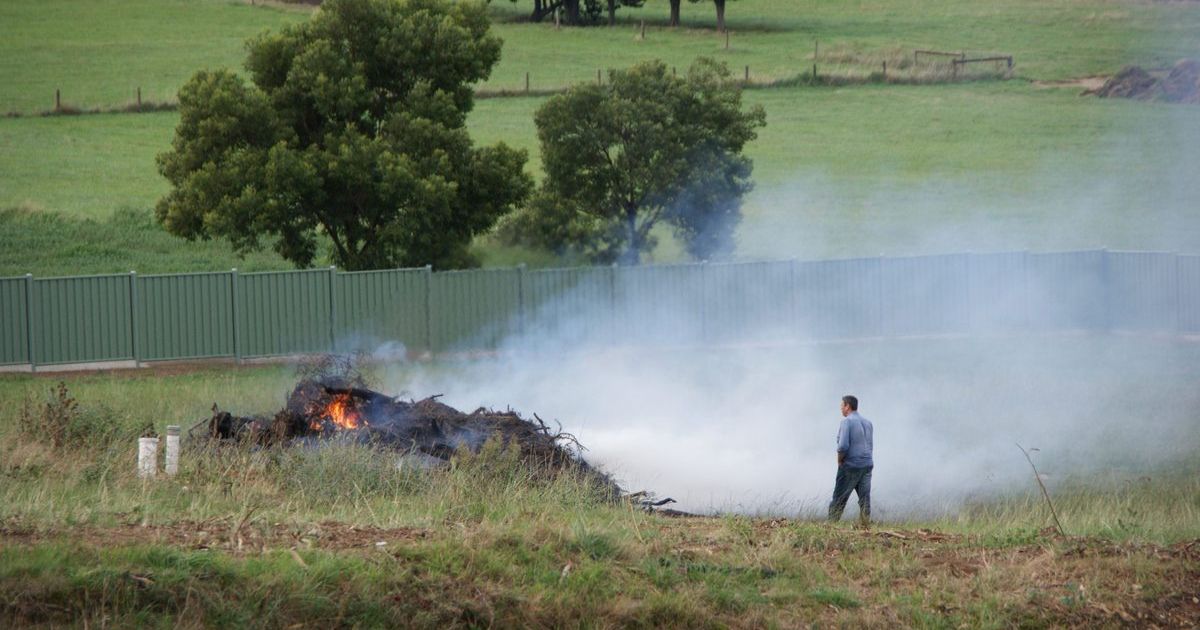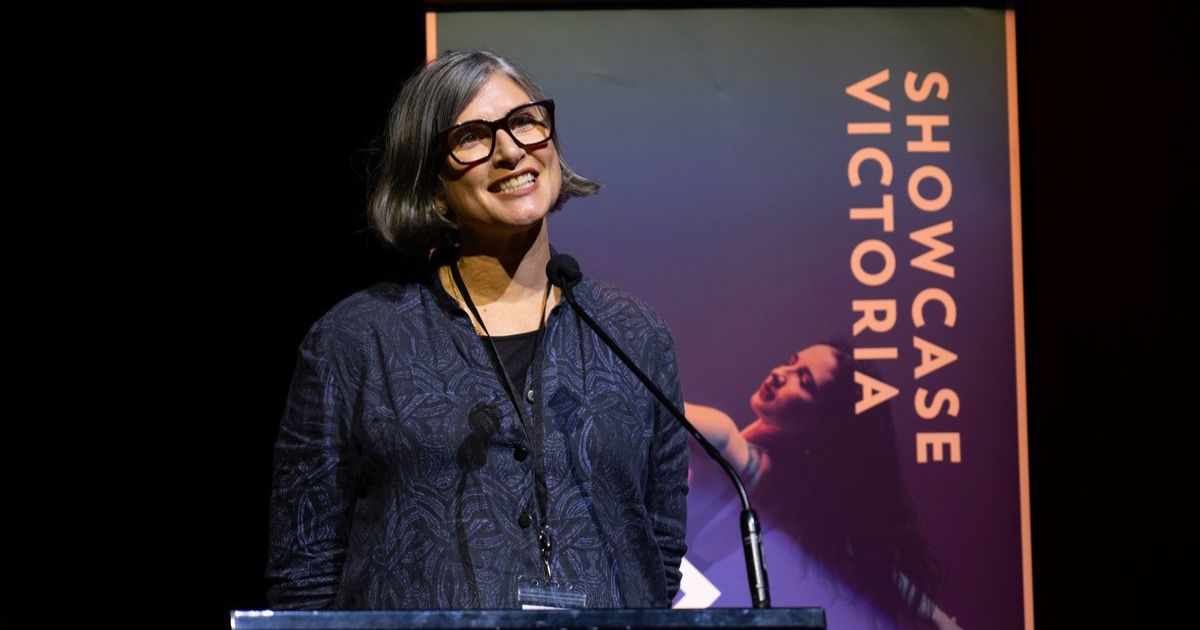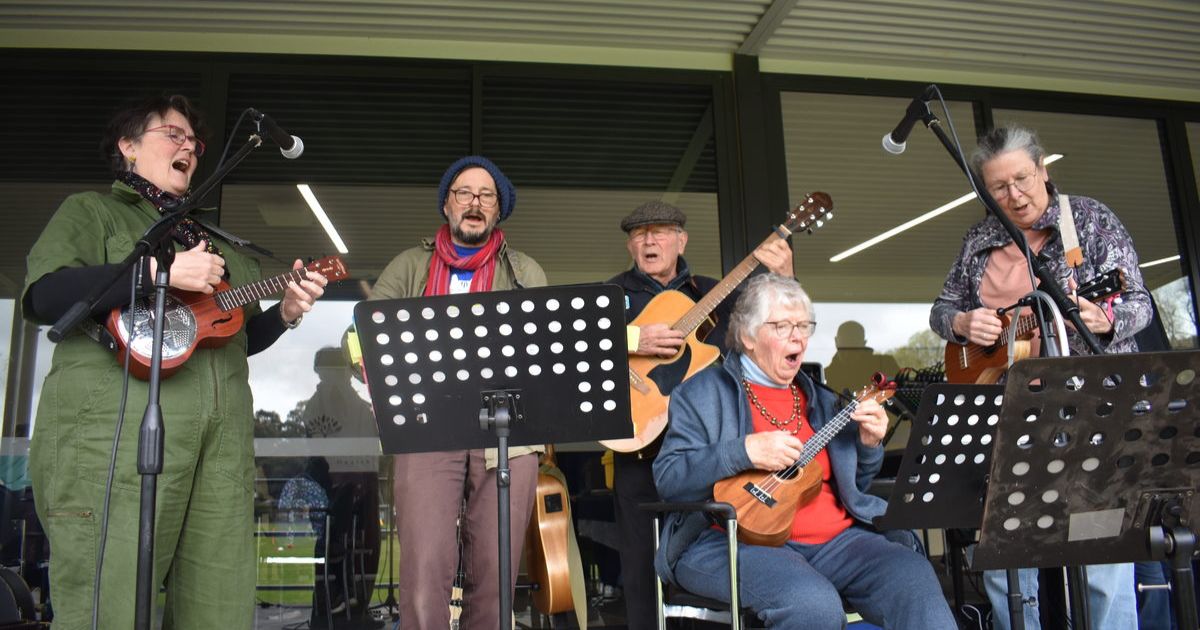Heathcote in the 1930s

Listen: Many people heard about the start of the Second World War on the radio rather than reading about it in a newspaper. Photo: FILE
THE 1930s saw the rise of fascism in Europe as countries struggled with a global economic depression and the longer-term repercussions of the First World War.
In Australia unemployment levels peaked at over 30 per cent in 1932 with hundreds of thousands of people out of work across the country.
In Heathcote, the pages of the McIvor Times served up a mix of national and international news coupled with a fascination for the glamour of Hollywood and its rising stars.
Entertainment was a welcome escape against the grim realities of the decade and the rising threat of war.
From the weekly picture shows to the celebration of a new king, with card nights, dances and a myriad of local fetes and fairs in between, there was plenty on offer across the district.

Talking pictures
In 1927 the Jazz Singer heralded the end of the silent film era. It took almost five years for this new technology to reach Heathcote.
Published Wednesday, 13 January 1932
TALKIES
The Heathcote Fire Brigade regrets having inconvenienced its patrons by reason of unforeseen difficulties in connection with the installation of its “talkie” equipment. The inventor (Mr Beaucaire) is in town, making the necessary adjustments, and successful trials are being made. With the completion of the plant, the utmost satisfaction can be assured.
Published Wednesday, 20 January 1932
TALKIES
A SINGING DRAMA OF THE SEAS
SATURDAY NIGHT’S BIG ATTRACTION
The first sound picture of the sea, with great waves breaking over the bow of the ship, the hawsers groaning and the crew chanting, comes to the Heathcote Fire Brigade Pictures on Saturday night next, with “The Delightful Rogue,” all talking Radio Picture, featuring Rod La Rocque.
This is the story of Lastro, the pirate – a 1930 pirate, in well-dressed linen suits, who plays the guitar and has a radio in his cabin.
Rod La Rocque plays the Latin lover who steals a yacht called The Golden Rule, and sets out to plunder a group of tropical isles.
The story is replete with thrilling adventures with a tropical setting that surpasses in scenic beauty any film ever booked at the local theatre.
Rita La Roy, a tall beautiful girl, whose entrance into pictures dates with the talking era, plays opposite La Roque as an island cabaret dancer.
It is to Miss La Roy that the theme song of the gay film is entrusted, “Gay Love” written by Oscar Levant and Sydney Clare.
She also sings other original numbers. Patrons should not miss this opportunity of seeing and hearing this musical drama of the high seas.
“Girl Habit” is the second feature, and there are supports.
A new king
George VI was crowned in May 1937 after the abdication of his older brother Edward VIII in December 1936. There was widespread celebration across the district and a strong emphasis on Australia as a part of the British Empire.
Published Wednesday, 5 May 1937
THE CORONATION
EVENTS AT HEATHCOTE
The Coronation on Wednesday next, 12th of May, will be celebrated at Heathcote with an event for the children.
Combined Sports for the schools of the district will be held on the Barrack Reserve at Heathcote, and a programme that should be very interesting has been arranged.
All ages have been catered for. Sweets will be distributed, and the children will be catered for by the Mothers’ Clubs and committee.
It is hoped there will be co-operation throughout the district for this effort.
Published Wednesday, 12 May 1937
KNOWSLEY
FANCY DRESS PAGEANT (edited extract)
Coronation Celebrations were held at Knowsley State School on Friday last, and took the form of a pageant enacted by the children, representing the different parts of the British Empire.
A procession led by John Bull (Bernie Long) and his generals paraded the grounds and they were followed by Scotch and Irish guards, representatives of India, Canada, and British Columbia, Australian soldiers, gold diggers, tea planters from Ceylon and dog teams from the frozen North, etc., etc.,
There were also many decorated floats, carts and bicycles, all reflecting credit on the children whose work they were, and the judges had a difficult task in deciding between them.
Eventually first prize was awarded to Thelma Giri (Eastern Princess), with Norma Milsom’s decorated tricycle second and Basil Kenworthy and W. O’Sullivan were awarded equal third.
After the children had saluted the flag, songs and recitations by the pupils followed, and then the Head Teacher (Mr Streader) asked Crs. J. Roney and J. Long to distribute the medals to the children.
Parents and visitors were afterwards invited to inspect the children’s work laid out in the school room.
Some very fine specimens of chip-carving, poker work, painting, pastel drawing, etc., were displayed, and the raffia work knitting (fancy), and fine needlework of the girls were much admired.

Return to battle
By 1939 Heathcote residents were learning about the wider world through several channels including radio broadcasts. The McIvor Times no longer played a key role in disseminating breaking news. The first editorial comment about the Second World War was published more than two weeks after Australia declared war on Germany on 3 September.
Published Wednesday, 13 September 1939
RETURNED SOLDIERS HOLD A SPECIAL MEETING
UNANIMOUS DECISION TO FORM RESERVE
RECOMMENDATION TO THE GOVERNMENT TO ENFORCE COMPULSORY TRAINING
A special meeting of the members of the Heathcote branch of the Returned Soldiers’ League was held on Saturday afternoon, when a consideration was given to a recommendation from League headquarters that in view of the international situation a reserve of former soldiers be formed.
A feature of the meeting was that out of 70 diggers in the district there was an attendance of 60.
The President of the Branch (Mr W Turner) was in the chair.
It was moved and carried: “That this meeting strongly supports and pledges itself to do all in its power to form a Returned Soldiers Reserve, but at the same time strongly recommend to the Government of the day to enforce compulsory training.”
In a statement issued recently the State President of the League Mr Holland said:
“I urge every able-bodied ex-soldier to join the army reserve without delay.
“Tens of thousands have already enrolled, but the Government asks for a 100 per cent enlistment, and we must comply.
“In this hour of danger the AIF and those who served in the other British forces in the last war must stand shoulder to shoulder in complete readiness to serve.
“Our duty has been made plain. It is sufficient for returned men to know that a national danger threatens for them to place themselves at the disposal of the defence authorities.
“Eventually, and the sooner the better, every able-bodied man in Australia will be under control for defence duties.
“Common sense demands that.
“But returned men do not choose to wait for the step to be taken.
“They will want to know in good time the tasks allotted to them, so that they may more readily and smoothly proceed to them.”
Published Wednesday, 20 September 1939
WAR!
That which we had hoped and prayed to avoid has been thrust upon us. Our nation is at war with its former enemy, Germany.
Lives are being sacrificed in an insensate display of fury, everything that has been attempted in the sublime effort to establish lasting world peace is again in the melting pot, and very fabric of our civilisation is in danger.
The Great Wall of 1914-18 – we were assured – was the war that was to end war.
The sacrifices made cheerfully then because it was thought and definitely asserted that such a mad bloodlust with all its viciousness and corruption could not possibly reoccur in a generation were in vain.
Within 25 years we find ourselves again on the threshold of a wanton slaughter and destructiveness, and there is just cause for the amazement and disgust which the people of Democratic Nations feel at being embroiled in a war which they did not seek.


















